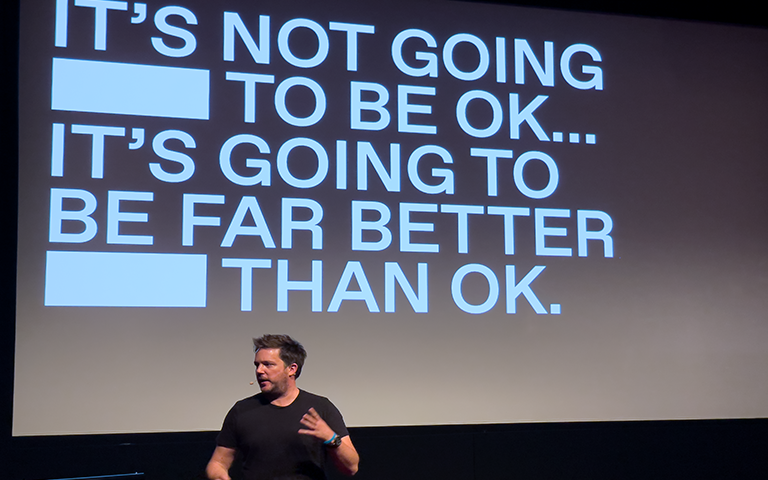The new normal: what is it and do we need it?

Futurist Chris Riddell and Lumachain Founder and ex-CIO of Qantas Jamila Gordon spoke at this year’s Market Connections Forum. We share some of their insights on what we can expect in a post-COVID world.
Chris Riddell used to travel. A lot. As a futurist and consultant his work took him all over the world and he never spent more than a few weeks in the same country. That was before 2020. Now Chris hasn’t left Australia in over a year and most of his work takes place from his home in Melbourne. Like nearly all of us, life for Chris looks very different from the pre-pandemic time.
2020 pushed a lot of phrases and words higher into our consciousness: pivot, pandemic and unprecedented to name just a couple. ‘The new normal’ is high on the list too. However, the idiom is far from new itself. Records suggest it was first used towards the end of the First World War when political thinkers were considering how to move on from the traumas of the conflict. After the intense disruption of the pandemic, it’s no surprise if individuals, businesses and society at large search for a baseline against which to plan and measure expectations.
Yet there is no clear view of what our new normal should be. If we try to pinpoint the characteristics of the new normal, they might include a move towards digital-by-default (and increasingly that means mobile) for communication, collaboration, customer service and other business processes. Many of us will also have new expectations of the flexibility of our work arrangements, whether that’s related to the location or the hours, while we are also seeing cultural behaviours such as social distancing, contact tracing and the end of handshakes become the usual.

Thriving without a new normal
Many of the changes we experienced during the pandemic were on the rise before COVID-19 struck. Remote working had been growing in popularity in some sectors while eCommerce was already a major part of the retail mix before its explosive growth in 2020. The pandemic did not create these forces but it did accelerate them and this is the major trend, which is likely to continue.
Chris suggests that we forget the notion of a new normal for now. Instead he believes we are in a time of transition. The change we have seen over the last 12 months is just the start. “The main difference from a year ago is the velocity of change. Just consider an average work day. We had a mass shift to remote working overnight. Collaborating on video calls rather than around a table became the norm. These changes are here to stay. Technology saved us during lockdown and now our collective appetite for change is high.”
Chris says the pandemic recalibrated our views on technology and has have helped boost adoption of transformative technologies such as automation and AI (artificial intelligence). This has created opportunities for startups to disrupt industries and innovative enterprises to step outside their lanes.
Jamila Gordon is one such disrupter. She is founder of Lumachain and former CIO of Qantas. Lumachain is transforming the food supply chain with a platform incorporating Internet of Things sensors, computer vision AI, blockchain and consumer apps. Embracing disruption and change, both external and fostering it within her company, is part of Jamila’s success.
“There are probably hundreds, maybe thousands of startup people who are trying to disrupt your business,” she says. “They're focused, they're hungry, and they work around the clock.”
The answer according to Jamila is to engage in ruthless disruption of your own business and harness the spirit of 2020: “Continu[ing to] put yourself into uncomfortable places means you’ll be ready for whatever comes next.”
Chris also believes in taking the positives from a year of immense challenges. He says 2020 was the biggest stress test of businesses’ plans to become digital enterprises. However, “the good news is that, to a large extent, it levelled the playing field and we now see opportunities to do things differently”, he says. The key to thriving today is not to wait for a period of calm in the hope it’s the ‘new normal’. He advises leaders to “find their happy space between the volatility and chaos.” This way they can become innovators and create the change they want to see.
